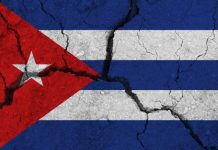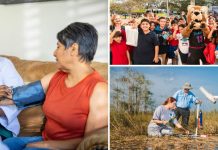|
Getting your Trinity Audio player ready...
|

Quarantine impacted the mental health of people worldwide, especially teenagers.
But how did the experience of social isolation during the pandemic affect some of the most vulnerable — those with a history of personal trauma?
FIU researchers led one of the only studies to find out. The team from the Center for Children and Families (CCF) surveyed 115 teens in Miami to understand if prolonged social isolation led to greater mental health impacts for those with a history of childhood physical and emotional abuse.
Collective trauma contributes to the rise of generalized anxiety and major depression among adolescents. Teens with histories of prior trauma are even more likely to develop psychological disorders later in life, particularly after other traumatic events. However, the study’s findings, recently published in the Journal of Youth and Adolescence, show teens had different psychological responses depending on the kind of trauma they had previously experienced.
“Belongingness and social connections are vital for all humans throughout their life, but the impact of social isolation is perhaps most striking during the adolescent developmental period,” said the study’s lead author and psychology associate professor Elisa Trucco. “We wanted to look at a group that may be at greatest risk — teens with abuse histories — and identify factors that exacerbate effects of childhood maltreatment during an experience like quarantine.”
Teens who reported experiencing emotional abuse in childhood reported greater anxiety during early stages of the pandemic if they socially isolated. The study’s authors say this may be because isolation limited their access to friends who may have helped them cope with the experience.
In contrast, teens who were physically abused in childhood prior to the pandemic were more anxious and depressed if they did not socially isolate from others. Because those who experience physical abuse often do not want to tell others, researchers say isolation could have taken away some of the stress or worry of anyone finding out about their childhood trauma.
While this study shines a light on a previously understudied topic, the authors point out that more research is required. However, the data shows collective traumas impact teens differently based on their lived experiences, so a one-size fits all response may not be effective.
This National Institute on Minority Health and Health Disparities funded study was led by Trucco, social work associate professor Nicole Fava from the Robert Stempel College of Public Health & Social Work and psychology associate professor Matthew Sutherland from the College of Arts, Sciences & Education.
Fava is currently leading efforts through the Center for Children and Families and other community agencies to provide free trauma-specific, evidence-based interventions for youth ages 3-17 and their families throughout Miami-Dade through a project funded by The Children’s Trust. Trauma-Focused Cognitive Behavioral Therapy (TF-CBT) helps children and caregivers cope with the aftermath of traumatic experiences and teaches them skills like relaxation techniques (like deep breathing) and cognitive coping (learning how to connect thoughts, feelings and behaviors). These are skills that could reduce the risk of youth using substances in adolescence and developing mental health problems.





